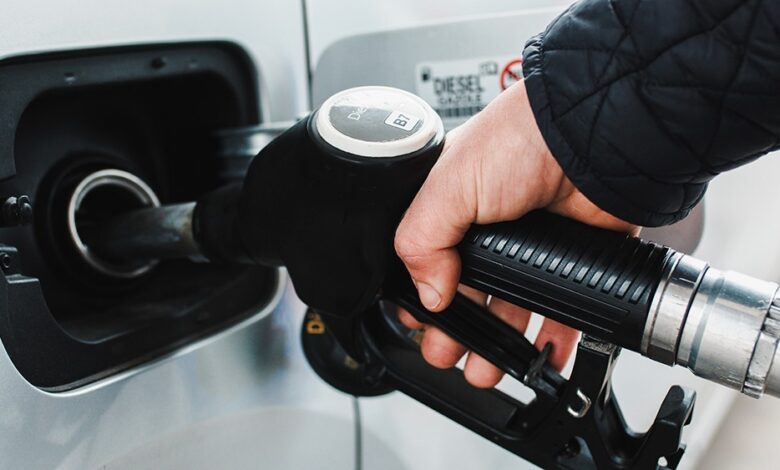The Impact of Regular Maintenance on Fleet Fuel Efficiency

Fuel efficiency is an important factor in fleet management because it affects overall operational costs and environmental impact.
Fleet vehicle maintenance is more than just an operational requirement; it is a strategic imperative that improves fuel efficiency, reduces carbon emissions, and ensures transportation operations’ long-term sustainability.
This article delves into the complex relationship between regular maintenance and fuel efficiency, examining various maintenance practices and their associated benefits.
The Correlation Between Maintenance and Fuel Efficiency
Numerous studies have established a link between stringent maintenance protocols and increased fuel efficiency. A well-maintained vehicle runs at peak efficiency and consumes less fuel. Regular maintenance that specifically targets engine performance, tire conditions, and overall system integrity is critical to this relationship.
According to the U.S. Department of Energy, maintaining vehicle efficiency through regular maintenance can increase fuel economy by about 4% on average. However, if maintenance tasks are neglected, this percentage can drop significantly, resulting in excessive fuel consumption and unexpected expenses.
Key Maintenance Practices That Enhance Fuel Efficiency
1. Engine Tuning and Oil Changes
Routine engine tuning is essential for maintaining ideal combustion conditions. Adjustments made during engine tuning can address issues such as incorrect air-fuel ratios, which have a direct impact on fuel economy. Additionally, regular oil changes are essential. As engine oil degrades, its lubricating properties deteriorate, resulting in increased friction and energy loss. As a result, fresh oil not only promotes smooth engine operation but also increases fuel efficiency.
2. Tire Maintenance
The condition of a vehicle’s tires directly affects its fuel economy. Proper tire alignment and inflation are critical for lowering rolling resistance. Under-inflated tires can reduce fuel efficiency by up to 3% because the engine has to work harder to overcome the added friction. Regular inspections and rotations ensure even tire wear and optimal pressure, allowing vehicles to travel further with less fuel.
3. Air Filter Replacements
The air filter is an important component that influences engine performance. A clogged air filter reduces airflow, resulting in inefficient combustion. Fleet managers should establish a schedule for air filter inspections and replacements, as a clean air filter can boost fuel efficiency by up to 10%.
4. Fuel System Maintenance
Regular fuel system maintenance, such as cleaning fuel injectors and inspecting fuel lines, is essential. A well-maintained fuel system ensures that fuel is delivered to the engine efficiently, resulting in optimal combustion. Issues such as clogged injectors or dirty fuel lines can cause incomplete combustion, increasing fuel consumption.
Benefits Beyond Fuel Efficiency
While fuel efficiency is often the primary goal of regular vehicle maintenance, the benefits go far beyond that. Improved fuel efficiency results in lower emissions, which contributes to corporate sustainability goals and environmental compliance. The transportation sector has been identified as a significant contributor to greenhouse gas emissions, and improving fleet fuel efficiency can help to mitigate this impact.
Moreover, investment in maintenance practices promotes a safety culture. Vehicles in good condition are less likely to have unexpected breakdowns, lowering the risk of mechanical failure-related accidents. This proactive approach not only protects fleet assets but also saves drivers’ and other road users’ lives.
Economic Implications of Enhanced Fuel Efficiency
The economic benefits of prioritizing regular maintenance are significant. The importance of fuel efficiency cannot be overstated in today’s volatile fuel market. Every percentage point improvement in fuel economy can result in significant long-term cost savings. Depending on the size and scale of operations, large fleets can save thousands, if not millions, of dollars per year.
Fleet managers who implement rigorous maintenance schedules see not only direct fuel cost savings, but also indirect benefits such as increased vehicle longevity. Well-maintained vehicles have fewer operational disruptions and lower repair costs, contributing to a lower total cost of ownership.
Monitoring and Reporting
To fully realize the benefits of regular maintenance on fuel efficiency, fleet managers must implement a systematic monitoring and reporting strategy. Advanced fleet management software allows for real-time tracking of maintenance schedules, fuel consumption, and vehicle performance metrics. These tools provide valuable insights, enabling informed decision-making and strategic changes to maintenance practices.
Regular reporting on fuel consumption and maintenance effectiveness encourages team accountability and fosters a culture of continuous improvement. Data-driven insights can pinpoint trends that require immediate attention, ensuring that fuel efficiency remains a top priority.
Conclusion
The impact of regular maintenance on fleet fuel efficiency is significant and multifaceted. Implementing disciplined maintenance protocols improves vehicle performance, increases fuel efficiency, and contributes to overall environmental goals. Prioritizing maintenance is not only a responsible practice, but also a strategic advantage for fleet managers as operational costs rise and regulatory pressures increase.
The need to protect against fuel inefficiencies is obvious, a dedicated focus on regular maintenance is a long-term strategy for sustainability and economic viability in the competitive fleet management landscape. The cumulative benefits of increased fuel efficiency make a compelling case for prioritizing maintenance practices, paving the way for more sustainable and cost-effective fleet operations.





